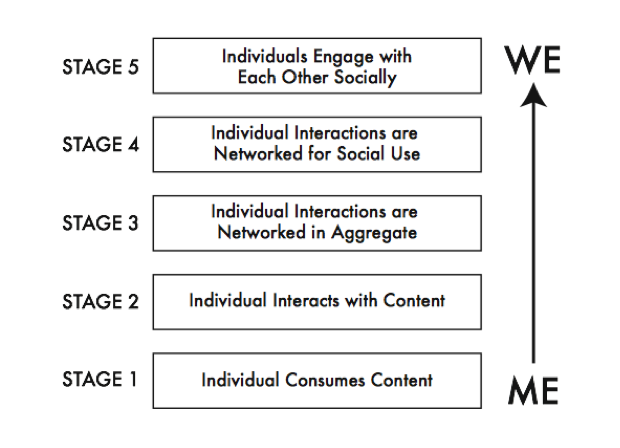This weekend, I’ll be speaking on a panel at The Conversation, a great event that has apparently sold out. My panel is about new ways of thinking about film festivals, screenings and DVD. The panelists joining me are great - Robert Bahar, Ira Deutchman, Bob Hawk and Mitch Teplitsky, and we’ve been emailing and hope to offer some good thoughts on new ways to make all of these work together for greater exposure, impact and hopefully, revenues. I’ll also be moderating a session where four social media experts talk a bit about new trends and then workshop audience member’s projects. I’m looking forward to that, as I think panels should, like culture today, become more participatory.
During lunch, I’ll be hosting a discussion on best practices for building robust audience engagement. What does that mean? This is the brief description I offered the organizer, when planning the talk:
Building robust audience engagement - Everyone is (finally) talking about audience engagement, but how can we enable more robust audience engagement? What happens when we think about engaging audience from the script stage, or allow them to interact at the story level? This discussion will focus on best practices and new ideas for building deep audience engagement.
I’ve been getting frustrated lately that most of our talk, mine included, around engagement has been in limited ways - crowd-funding, audience building (followers/fans) and at times, getting active with some issue in the film, usually if it’s a doc. Some transmedia types go further and try to engage the audience in the story in multiple different ways. Good transmedia types are even doing this from the beginning and letting the audience interact with the story, and maybe even change it. As filmmakers begin (ok, I know a few who’ve been doing this for a long time) to think more about audience engagement, they’ll need to think about this as well. What happens when you let the audience have more control? I’ve spoken to many filmmaker who are horrified at this thought - they want to be the auteur and maintain all artistic control. Sure enough, there’s also good reason to wonder about the aesthetic quality of such projects. There’s also, however, much potentially to be gained. New things might happen that we don’t expect, new story forms might be developed and something creative might take place. It will also likely increase audience engagement and perhaps that in itself will build larger audiences. I’m not sure what will happen, but I’m interested in discussing it, and if you are too, then join me at lunch.
A second part of the conversation is much more basic. If we want to engage audiences more with our projects, what might be some best practices. I’ve been reading a bit of Nina Simon’s book, Participatory Museums (you can read it online free) and she does a great job of analyzing what attributes help make something more participatory. In chapter one, for example, she lays out different types of participants, from those who don’t at all, to the most active ones and gives real world examples of ways to get people to move from “me to we,” or to become more actively engaged with a project. (You can read about it here, I’ll probably blog more in-depth about it later, and that chart above is from her site) I’m hoping to discuss how her ideas about participation in museums might work in thinking about films and storytelling. I’d also just like to hear about successful examples from others at the conference. So, if any of these subjects interest you....join us.

2 comments:
I haven't read Nina's book, but now intend to. An interesting result of participatory is immediacy, and thus a lack of permanency - it is more about the design of how to engage and participate - rules. Auteurs are upset because the more engagement a media has, the more it is about that particular experience/outcome (think sports) and the less it is about their vision. I think that watching sports is a good analogy to thinking about participating in media. Just a quick thought before a meeting.
Hey Brian,
I'm heading up for The Conversation on Saturday. After going through the schedule, it looks like I'll be sitting in on quite a few of your panels. I'm looking forward to it. Building engagement with the audience has been something I've toyed with on my last project - StandardsOfEthicalConduct.com, but I'm really looking to open it up more on my next project, which I think will be a documentary about freedom in this country and where its being impeded. That seems to be a great area for audience participation as they can share their personal stories of injustice.
Post a Comment